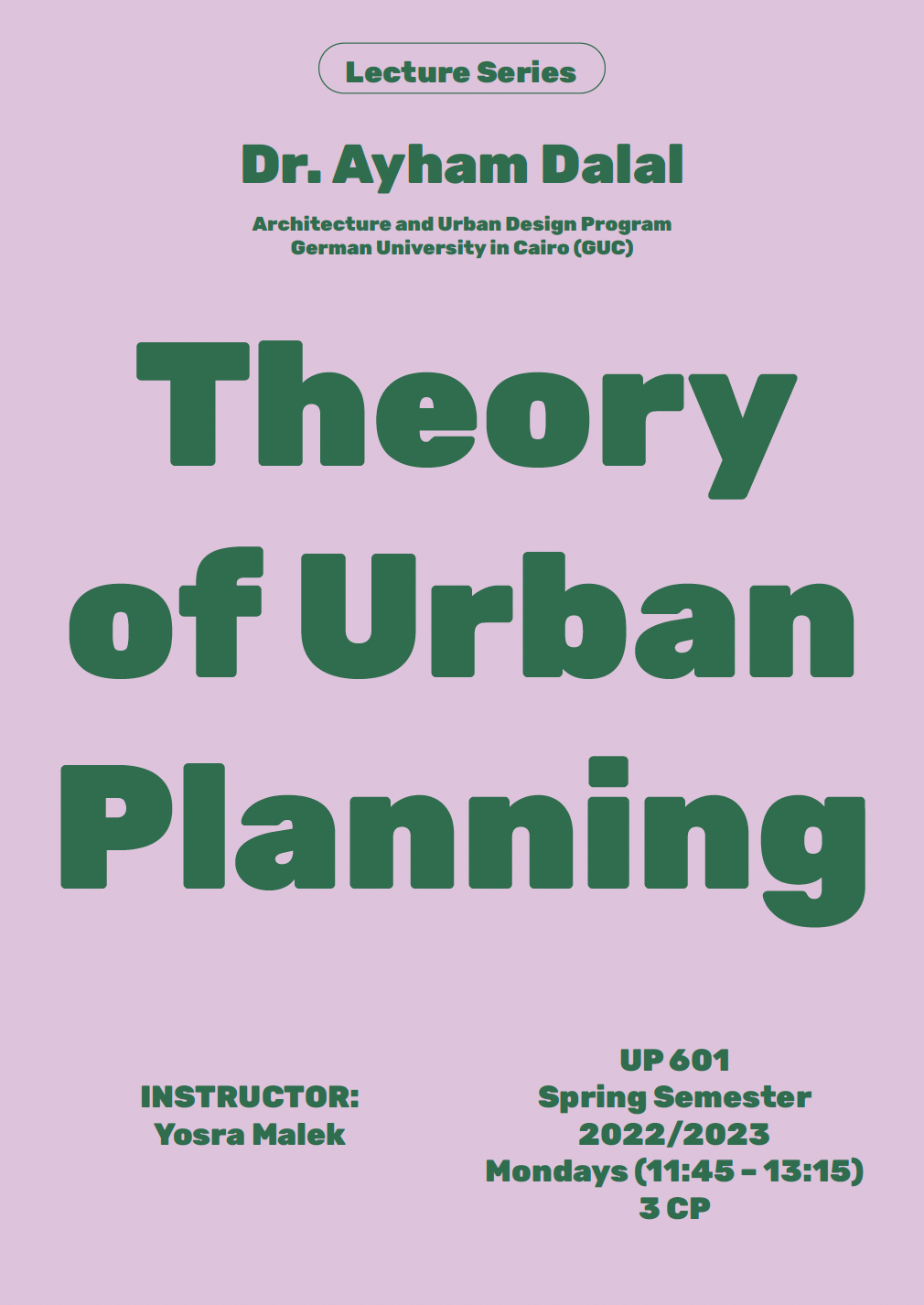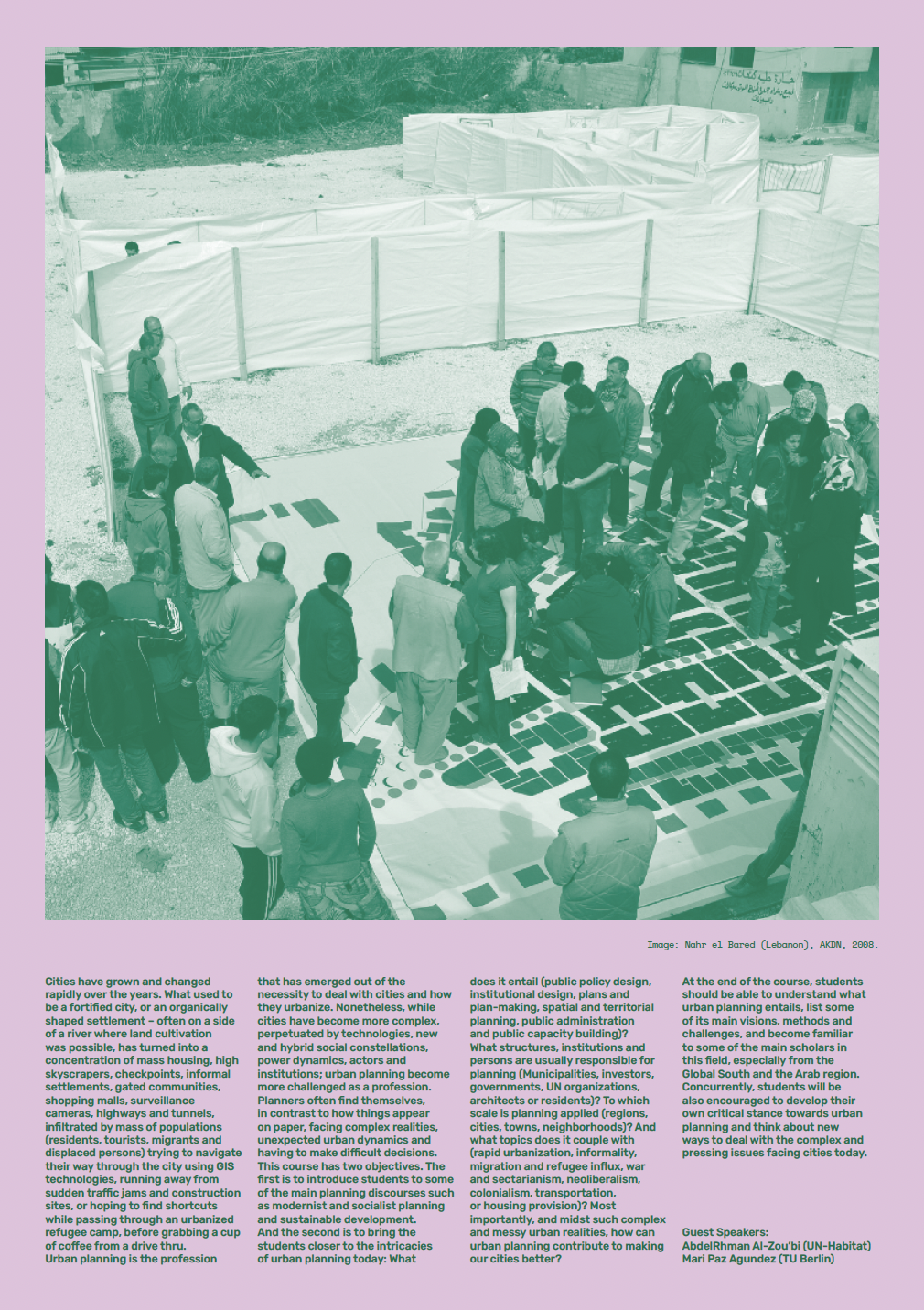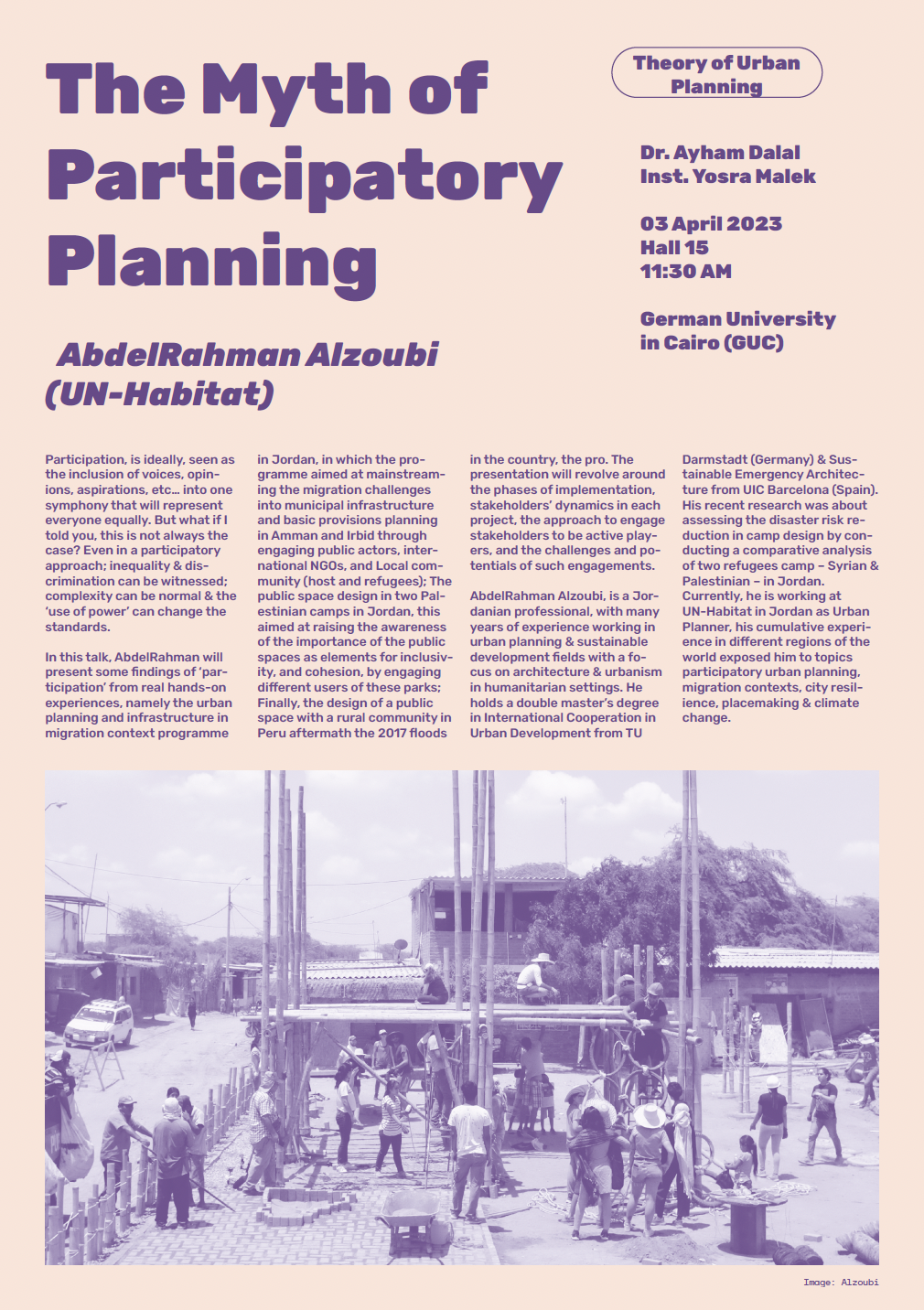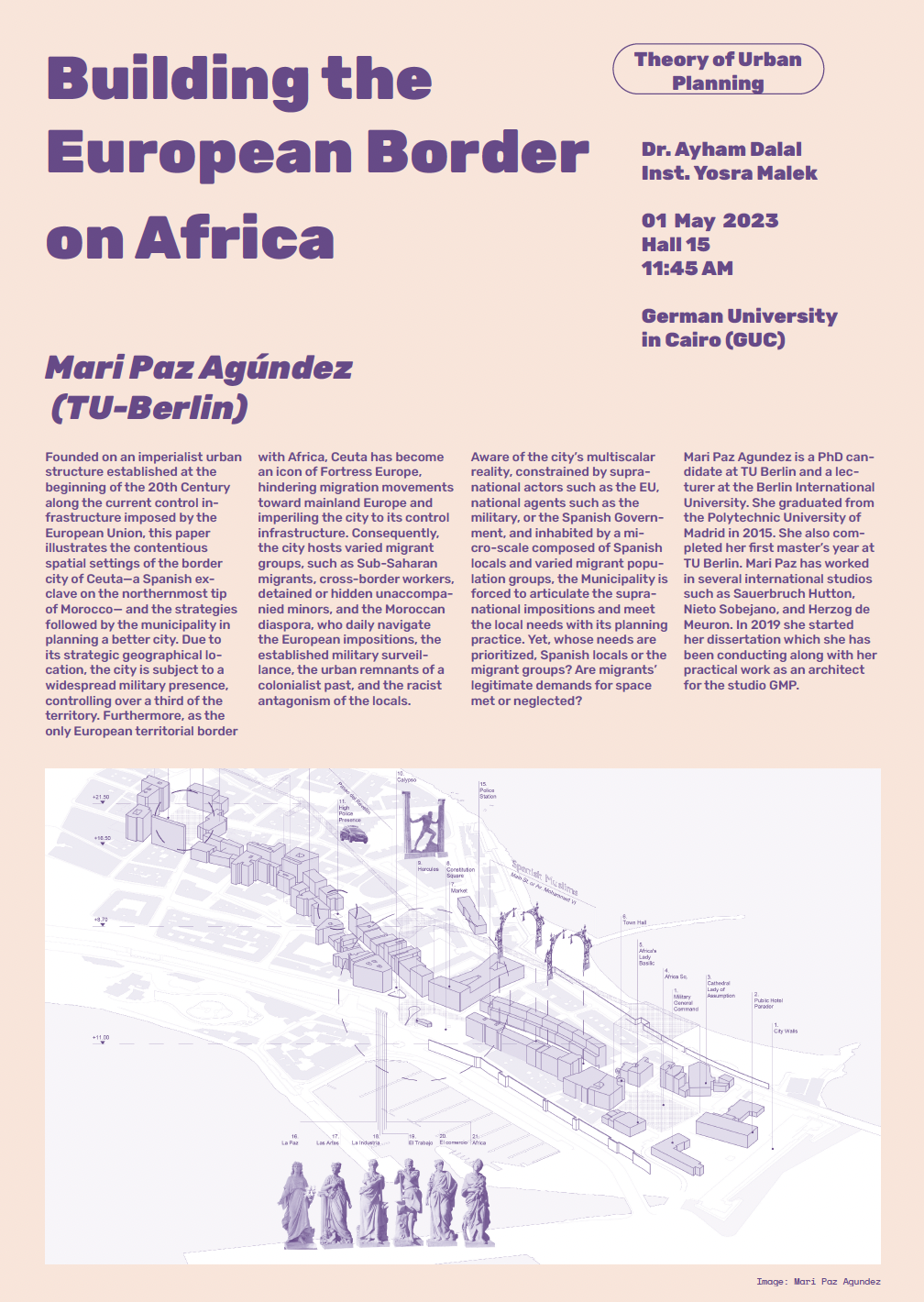Theory of Urban Planning
Cities have grown and changed rapidly over the years. What used to be a fortified city, or an organically shaped settlement – often on a side of a river where land cultivation was possible, has turned into a concentration of mass housing, high skyscrapers, checkpoints, informal settlements, gated communities, shopping malls, surveillance cameras, highways and tunnels, infiltrated by mass of populations (residents, tourists, migrants and displaced persons) trying to navigate their way through the city using GIS technologies, running away from sudden traffic jams and construction sites, or hoping to find shortcuts while passing through an urbanized refugee camp, before grabbing a cup of coffee from a drive thru.
Urban planning is the profession that has emerged out of the necessity to deal with cities and how they urbanize. Nonetheless, while cities have become more complex, perpetuated by technologies, new and hybrid social constellations, power dynamics, actors and institutions; urban planning become more challenged as a profession. Planners often find themselves, in contrast to how things appear on paper, facing complex realities, unexpected urban dynamics and having to make difficult decisions. This course has two objectives. The first is to introduce students to some of the main planning discourses such as modernist and socialist planning and sustainable development. And the second is to bring the students closer to the intricacies of urban planning today: What does it entail (public policy design, institutional design, plans and plan-making, spatial and territorial planning, public administration and public capacity building)? What structures, institutions and persons are usually responsible for planning (Municipalities, investors, governments, UN organizations, architects or residents)? To which scale is planning applied (regions, cities, towns, neighborhoods)? And what topics does it couple with (rapid urbanization, informality, migration and refugee influx, war and sectarianism, neoliberalism, colonialism, transportation, or housing provision)? Most importantly, and midst such complex and messy urban realities, how can urban planning contribute to making our cities better?
At the end of the course, students should be able to understand what urban planning entails, list some of its main visions, methods and challenges, and become familiar to some of the main scholars in this field, especially from the Global South and the Arab region. Concurrently, students will be also encouraged to develop their own critical stance towards urban planning and think about new ways to deal with the complex and pressing issues facing cities today.
-
Course CodeUP 601
-
LevelUndergrads (6th semester)
-
LocationGerman University in Cairo (GUC)




